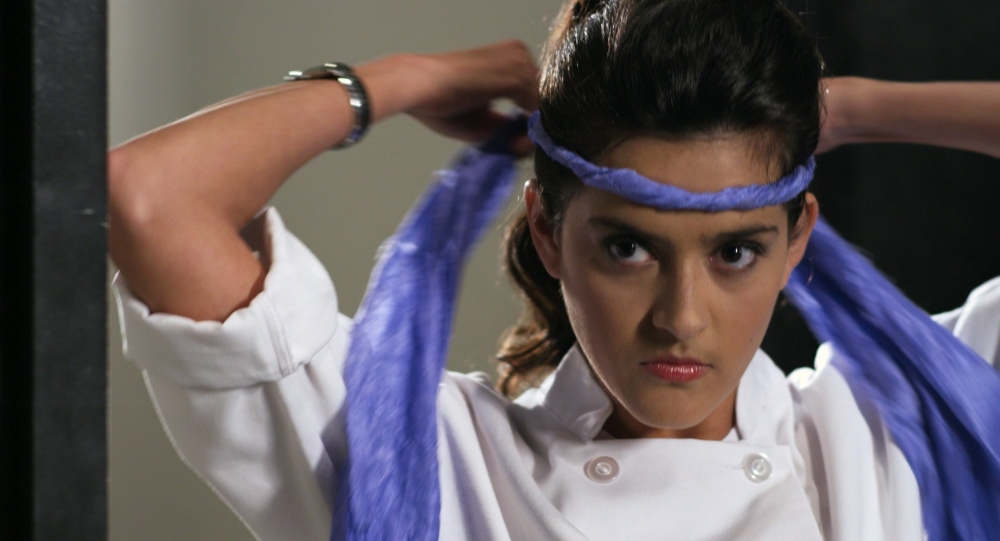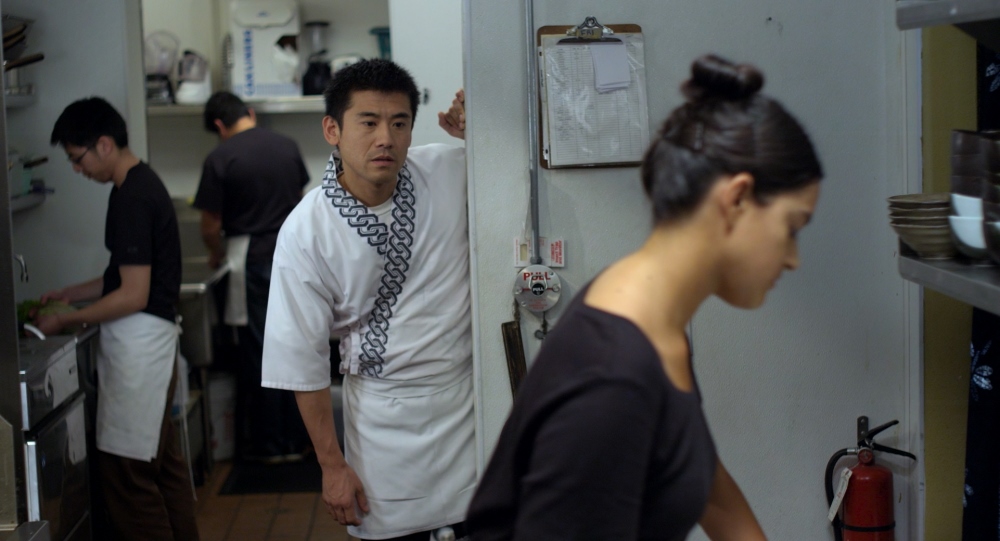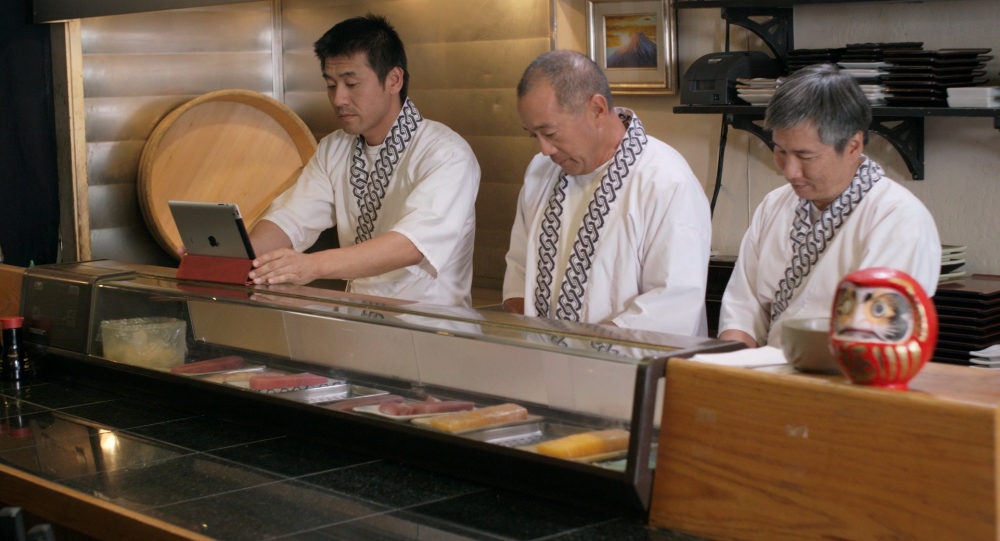
Not just for foodies, East Side Sushi delves into matters of difference, gender, culture and prejudice, in a fun and fast-paced film, with Diana Elizabeth Torres sure to win hearts as Juana, a hard-working Latina single mom in Oakland, capable, courageous, willing to take risks, and determined to make a good life for her family. And of course, there is sushi footage galore, so be prepared to leave this film craving some sushi.
Written and directed by Anthony Lucero, East Side Sushi keeps it real with scenes of working class life in Oakland. Juana gets up before sunrise, as she and her father go out to select fruit for their stand, carrying her daughter Lydia to sleep in the truck before going to school. Hard work and good intentions are no guarantees of good outcomes, and Juana is struggling from one dead-end job to another. Then one day she sees a help wanted ad in the window of a sushi restaurant, Osaka. “It doesn’t sound Mexican to me,” is her father’s response.

Juana’s upbeat energy and willingness to put brains and muscle into everything she does, get her the job, but it’s very much a journey into the unknown. She has never seen sushi before, let alone tasted it. At first, when the kitchen staff sit down together for their lunch, she is even hesitant to approach this strange new food. But once she takes a taste, encouraged by Aki, the sushi chef, she is delighted. Well, it’s sushi, who wouldn’t be delighted? Her curiosity sparked, she is eager to venture further into this delicious territory, but she runs right into a wall. Two walls. As the restaurant owner informs her – only men can become sushi chefs, and besides, she isn’t Japanese.
At first glance, authenticity is a concept easy to endorse. The idea of recipes handed down from one generation to another, a living cultural tradition and cuisine, is very appealing. Yet if, for generations, only men have been sushi chefs, does that mean that women cannot or should not? Perhaps it is worth looking more closely at traditions and asking questions: how did it come about that men became sushi chefs and women did not? If this custom originated from prejudice, a belief that women are not as capable as men, then perhaps it’s time to let go of that particular aspect of tradition.

In seeking out cuisine from different cultures, for many of us, “authentic” is one of the highest accolades. It is easy to identify with the customer who peeks into a sushi restaurant and is reassured by seeing obviously Japanese chefs at the sushi bar – because surely, they are the experts, this is their cuisine, their culture. East Side Sushi however, gives the viewer a different view of the restaurant: from the kitchen, where, as Juana says in a pivotal moment in the film, Hispanics are doing all the prep work behind the scenes, without many opportunities to advance in the kitchen hierarchy, while the chefs and restaurant reap the compliments.
In our increasingly global culture, the questions become more complex. Consider Julia Child, without whom, it might have been decades more before the United States opened its kitchens to French cuisine. These daring upstarts, who enter foreign kitchens to learn, and create, not only become ambassadors for the culinary delights and culture in which they immerse themselves, they invigorate and contribute to the influence and endurance of that culture. Then, like Juana, there are the innovators – in cuisine, as in many other aspects of culture – fusion is fantastic!
For the daring among you – How to make the Green Diablo Roll:
East Side Sushi
Written and directed by Anthony Lucero; Cinematography: Marty Rosenberg; Editing: Ansoni Hikari; Music: Alex Mandel; Cast: Diana Elizabeth Torres, Yutaka Takeuchi, Rodrigo Duarte Clark, Kaya Jade Aguirre, Roji Oyama, Miyoko Sakatani, Lane Nishikawa. (English, Spanish, Japanese dialogue)





